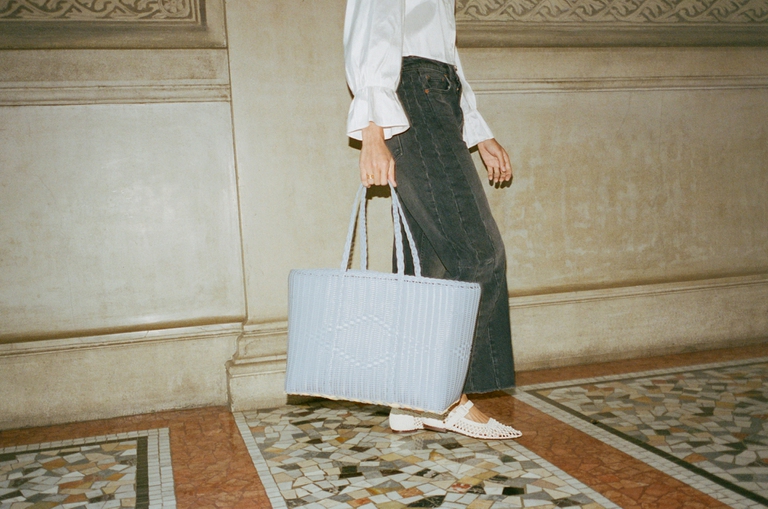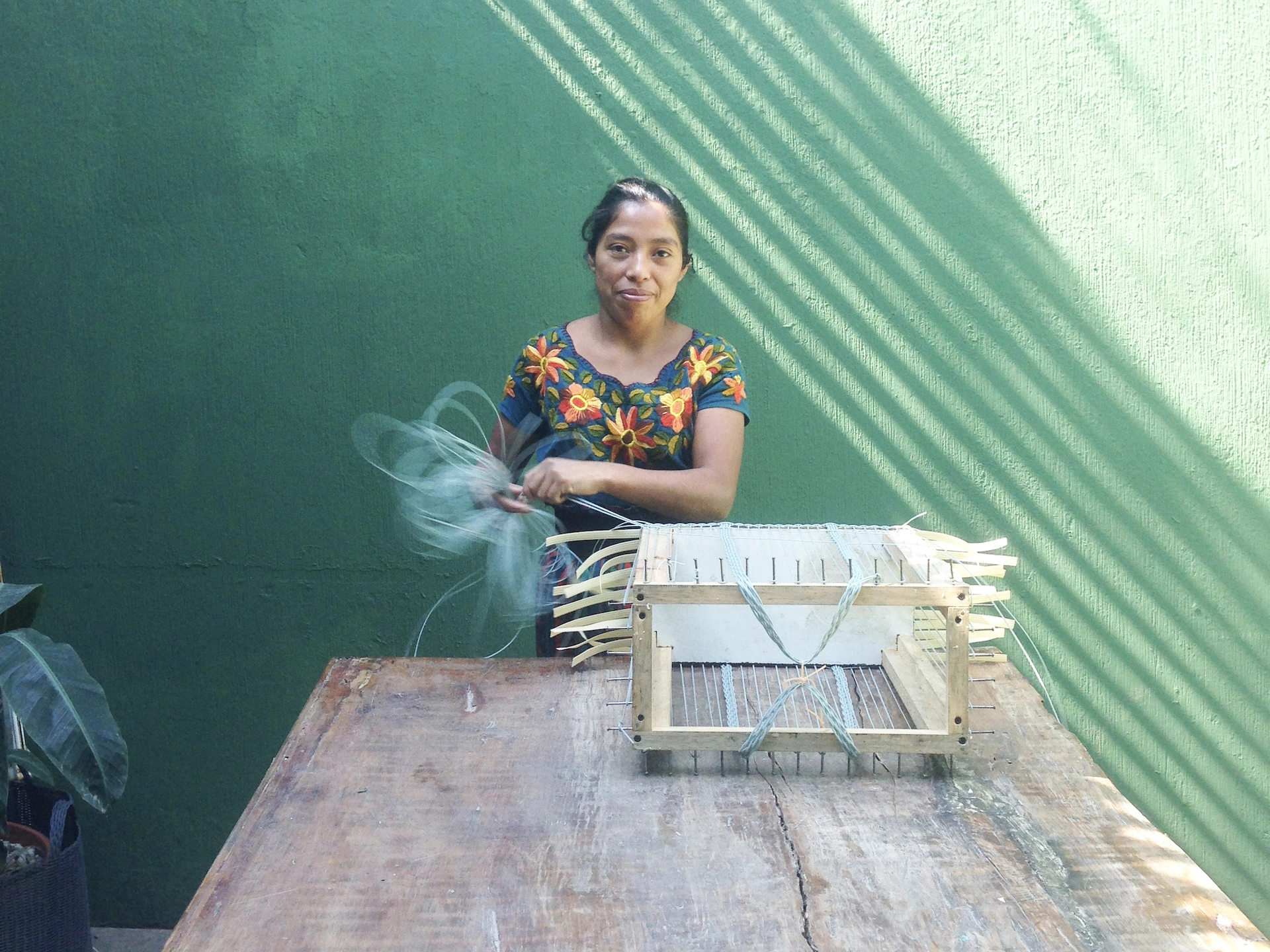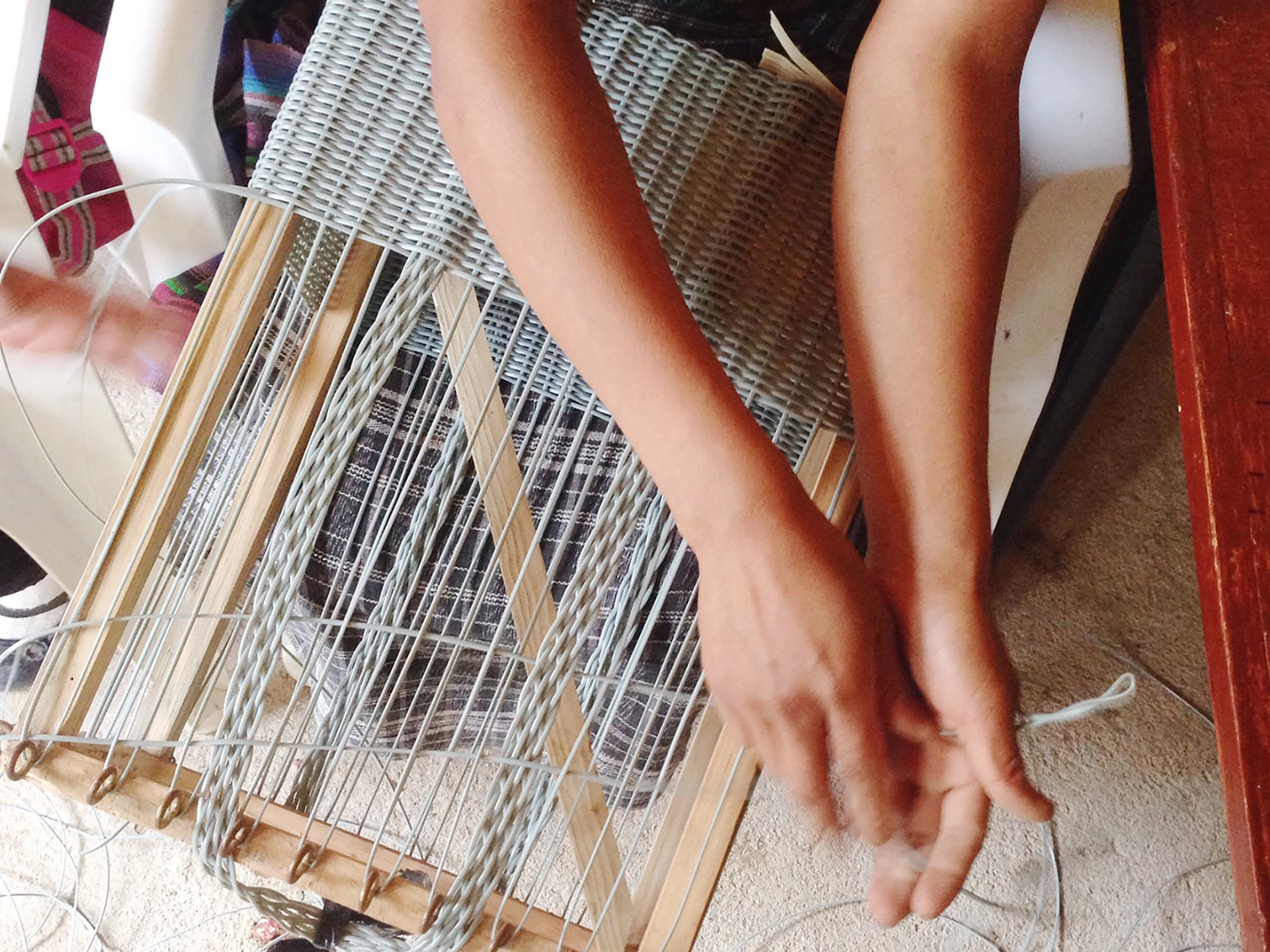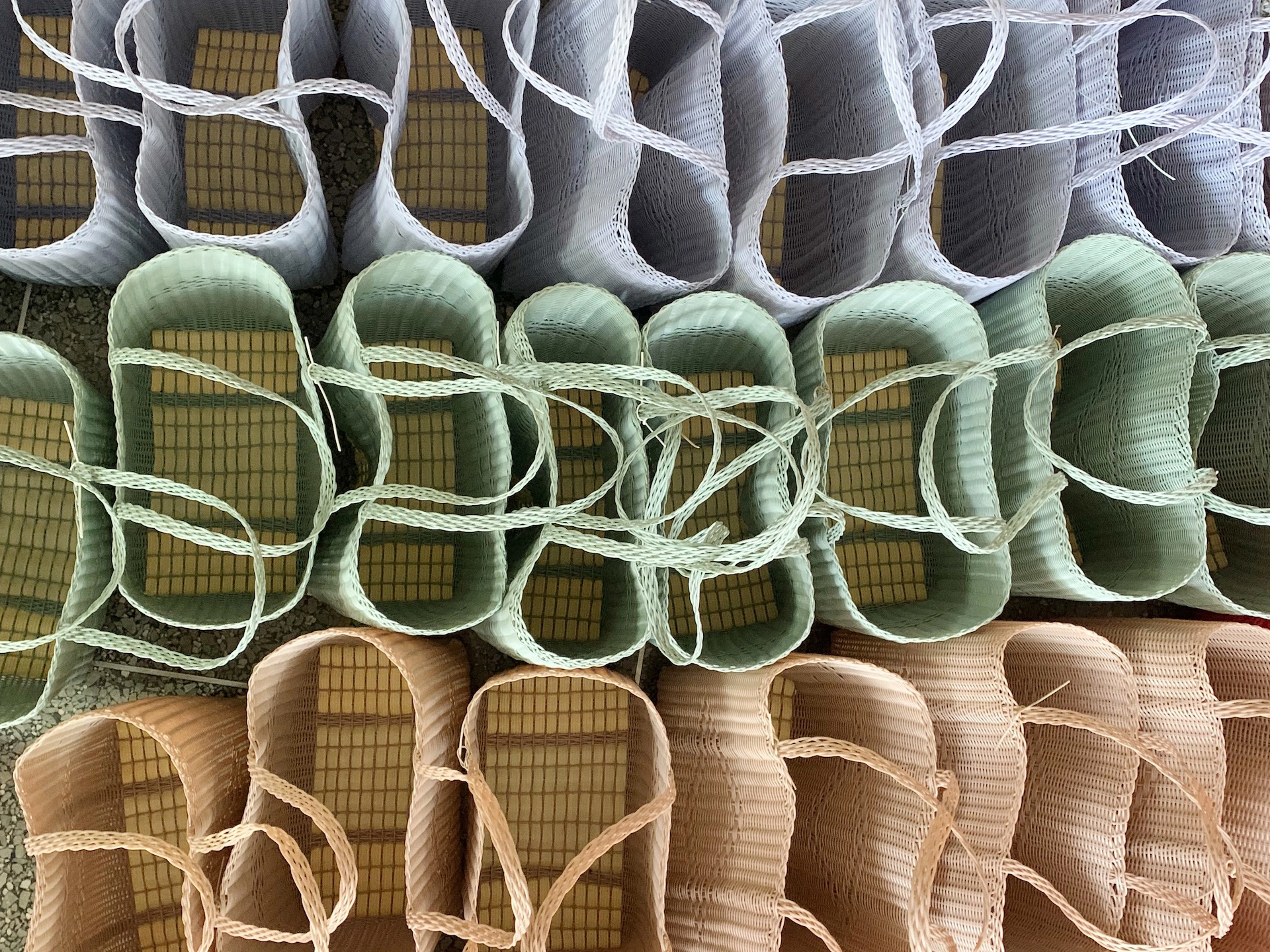https://www.lifegate.it/palorosa-borse-guatemala
- |
Can a simple object like a shopping bag become the flagship product of an independent brand and, at the same time, represent a growth factor for a Guatemalan community?That's what happened to Palorosa, a brand founded ten years ago by Cecilia Pirani, That produces handcrafted woven plastic bags, characteristics of that part of Central America, proposed in a monochrome version and in a minimal and refined color palette.

Palorosa, between design, distant roots and craftsmanship
The founder Cecilia Pirani has Guatemalan roots on her mother's side, but she was born and raised in Milan where she began working as a landscape architect until, in 2012, she left her job at a large architecture firm to decide to move to Guatemala City.“I was going through a moment of general life reflection and decided to spend time in a place where I felt I belonged, but where I had fundamentally never lived.I also went there with the idea of doing a lot of research on what was happening in terms of craftsmanship and design:if before, as an architect, I designed the urban development of parks, I have always had a passion for objects and for research into materials.Frequenting the markets a lot, both in Guatemala and also on some trips to Mexico, I immediately fell in love with the colorful shopping bags used by women to go shopping and to carry everything they needed with them:70 percent of the country is represented by indigenous communities whose elegance and rural and colorful aesthetic has always fascinated me.Furthermore, I have always had a passion for bags and, after the first seven, eight months, I found a craftswoman and placed my first order with her, and that's how it all started."
Now that the brand has grown, has production remained as artisanal as that first order?
Absolutely:when I started to structure myself I started to work with more women, more families even.I'm talking about women because most of them are, but husbands are often employed too:for them textile craftsmanship has always been a way of integrating the family economy, many have looms at home and produce what is needed, or sell it in small quantities.As far as Palorosa is concerned, our artisans can manage the work, which they do completely at home with tools and materials supplied by us, precisely because for many it is not the main activity, but is combined with others, such as agriculture and livestock.Of course we guarantee the living wage for hired people, and fair wages for artisans who work on commission.Just before Covid we turned to a company that helps startups in economic-financial analysis and helps to respect adequate living wages and salaries.For us, however, the point has never been to follow a rule or a number established by the government:for us it is a theme of the human relationships that we create with these people and of allowing them to have the right balance between work and private life.Each craftsman has his own code, with which we can keep track of orders and process payments, and is totally autonomous both in managing his work and in the quantity of orders to be taken.Obviously craftsmanship brings with it complications that cannot be foreseen, such as the fact that someone is unwell and therefore the delivery is delayed, but it is the beauty of still doing things this way.

Do you believe you have managed to create value both for your brand and for the artisans you employ?
I believe the answer lies in the relationships we have with these people.The first artisan I worked with is still with us and the last time I was there we had a meeting and lunch together and I really thought I had created something beautiful for these people, and not just in economic terms, but also of aggregation.My approach is certainly very intuitive and spontaneous, I have not studied management and I am not an expert in sustainability or social impact, but the human feedback is there and it brings concrete results.

How important are your roots in this process?
My background comes from architecture and design:what I did was combine aesthetic research with my roots and, for me, it is very different from being a designer who chooses to relocate his production here, perhaps even relying on cooperatives and doing everything in an ethical way.The fact that I am half Guatemalan immediately inspired in me the desire and need to do something in Guatemala and above all to have a real impact on the community.It all started spontaneously:I never thought of building a social project from scratch, but it came naturally to me to create strong working relationships with artisans.I also believe I managed to show a different side of Guatemala in this part of the world.
Minimal aesthetics and research into materials
What struck you most about Guatemalan aesthetics?
I didn't invent these bags, I simply reinterpreted something that already existed, but it's a way to raise awareness of a perhaps lesser-known aspect of a culture.This type of bag, the very large and woven shopper, is very popular in rural areas because it is resistant and has a thousand uses.I then chose my trademark, which is the development of the product palette which, unlike the original one, is monochrome and available in shades that I choose specifically and which are not the ones they would use in Guatemala, where the colors are always very vivid.Now even the craftsmen are starting to appreciate them, but initially they didn't understand them.

Are the raw material suppliers also local?
This specific plastic thread is made only for these bags and only between Guatemala and Mexico, so production is quite limited and is a mix of virgin plastic and post-consumer recycled plastic.The issue of recycling, for a small production like ours, is difficult to manage:we found another supplier with whom to carry out research and development, but at the moment there is no manufacturer who makes the thread we need from 100 percent recycled plastic.Our production at the moment is too small for anyone to decide to make it just for us.Furthermore, an essential component for us is durability:also using virgin plastic together with recycled plastic allows us to create a product that is indestructible and which also keeps its color characteristics intact over time.Industrial production has completely different logics than those of craftsmanship.Clearly plastic is unpopular, but our desire is to control the process as much as possible and to also reuse our own material because, and this is our plus, our bags are made of a single material and therefore can be easily recycled .Working made to order We don't have any surplus inventory or a lot of waste, but clearly there is some and ours are destined for a company that produces recycled plastic soles:having a single-material product allows us this.
